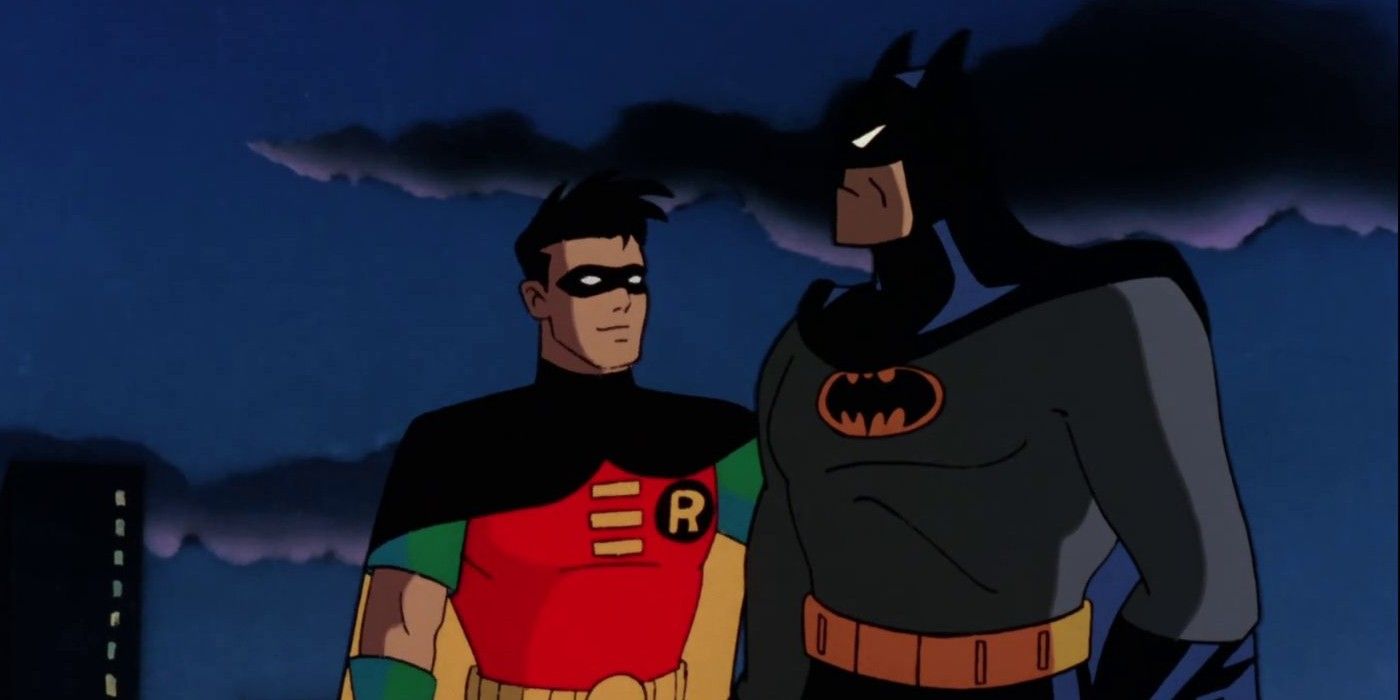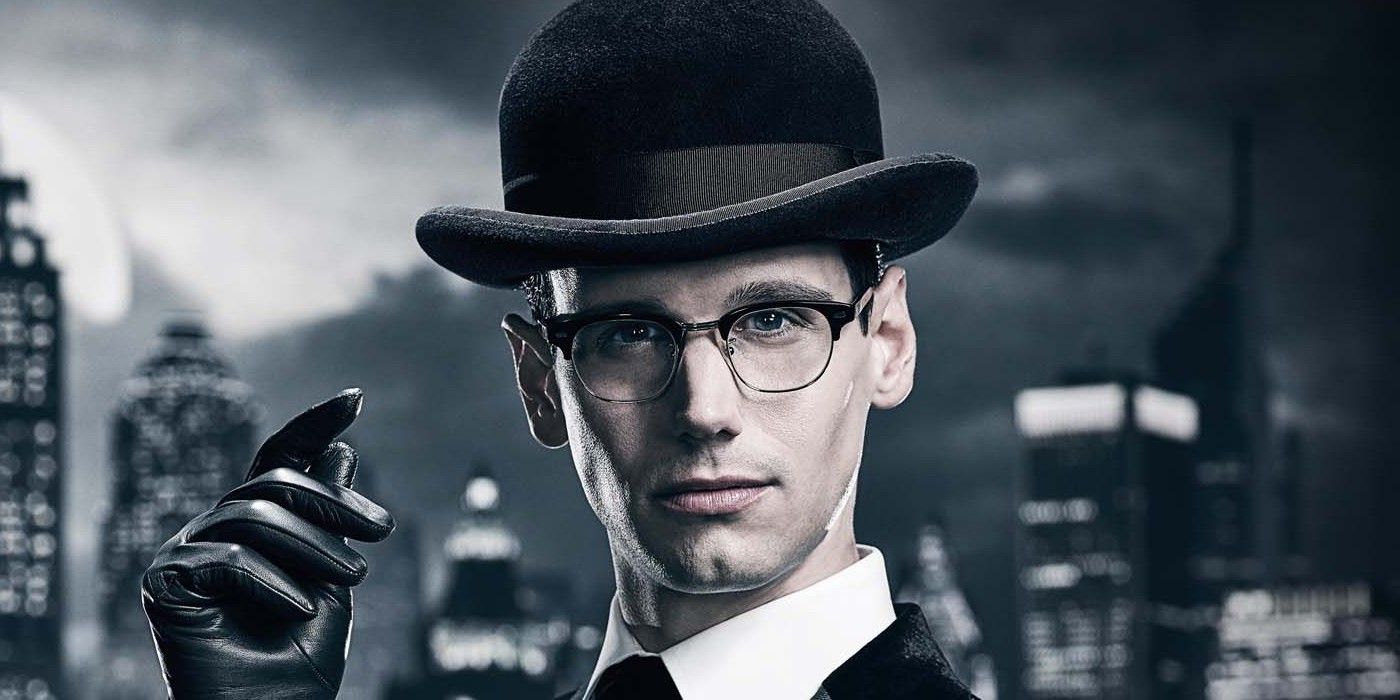There's more to a good Batman show than the Dark Knight himself. A strong supporting cast of characters is also important, and over the years there have been plenty of Batman characters who have stood out. Sometimes they are even so compelling that they could have carried their own show if given the chance.
Alfred's role has changed a lot over the decades. At first he was simply Batman's butler. Eventually he became a second father to the Dark Knight, and has also been shown managing the various gadgets and gizmos littered around the Batcave. More recent shows have even shown him acting as Bruce's mentor, something he does in Beware the Batman. Not only is Alfred responsible for training Bruce, teaching him how to fight and keeping him in shape, but his past as an MI6 agent is also a key plot point to multiple story lines. Alfred being a spy in a former life isn't unique to Beware the Batman but the show focussed on it in a way that its predecessors hadn't. Alfred was an enemy of Ra's Al Ghul. He had a similar relationship with DC mainstay Deathstroke that he did Bruce. Alfred's past wasn't just used as material for one episode, it was just as much the driving force as Batman's own life and ambitions, and it pulled this off years before Pennyworth would come along with its own take on the Butler's origin story. Beware the Batman's take on Alfred shows how Batman's mythology can be expanded by giving other characters greater importance in the plot even while still making it about Batman.
Another way that supporting characters can stand out is by being different; giving something to the show which the main character just doesn't. No character does that better in Batman the Brave and the Bold better than Aquaman. Aquaman had a rough time of it for a while. Thanks to how he came off in Super Friends (and the jokes which followed) he was as something of a joke character. Rather than trying to make their version super intimidating to compensate, Batman the Brave and the Bold instead used him to make a joke that the character was in on. He became a blowhard, always promoting his adventures for people to read in his "latest memoir", and loudly proclaiming "outrageous at every opportunity". However, he was clearly still a good person with his heart in the right place, and he was also an effective crime fighter. More than that, his larger than life personality and optimistic outlook was a great counter to Batman's more subdued, serious personality. He was a great example of why the world's great detective is often at his best when he has another character to play off of.
Supporting characters in a Gotham based show embody the show just as much as Bruce Wayne, and few characters did that as well as The Riddler in Gotham. The character started off working for the GCPD in the first season when it was more of a cop show before becoming an infamous criminal. A lot happened to the character. In fact, a bit of everything the show had to offer happened to him. At various times he was either embracing his murderous side, attempting to lead a better life, or working with Leslie Thompkins to run a makeshift court of ignored and forgotten citizens. The show involved mystery, so he solved mysteries. The show featured a lot of death and resurrection, so he died and came back to life. The show was about characters trying to figure themselves out in a city as strange as Gotham, and The Riddler did that too. Basically you could figure out what Gotham is about in terms of plot and creative choices almost entirely by looking at what its version of The Riddler went through. He wasn't just one of Gotham's best characters. He was everything the show had to offer in one character.
An important part of any good supporting character is knowing and how when to use them, like Robin (Dick Grayson) in Batman: The Animated Series. Robin fights crime alongside his mentor and father figure, but he doesn't do it every episode. In some episodes he is in the middle of the action with Batman from the get go. Sometimes he's on the side-lines, still providing important information, but not directly involved, and there are a number of episodes where he doesn't appear at all. Batman: The Animated Series shows what can be done when a supporting character is given their own space away from the title character. In the episode House & Garden, Robin is able to provide important information to the plot because he is away at college doing his own thing. He has his own life going on so writer's can decided whether or not he has something to add to an episode rather than trying to shoehorn him in every time, and he is better for it as a character when he is put into a story. When he is around, he hits the perfect sweet spot of being similar enough to Batman for the two to work well together, while being different enough to give the writer's a different point of view to work with, and occasionally use to fuel drama.
There have been a fair few Batman shows over the years. Each one of them has a different take on the character with its own tone and aesthetic. It may be tempting to define each one of them by how they handle Batman himself, it's the supporting characters who really shine a light on what makes each of their individual shows tick. While they are often overlooked, more often than not, they are the standout characters that different takes on the same crime fighter use to make their makes. In some ways, its not Batman which makes a Batman show; it's everyone else the writers focus on who do that instead.


